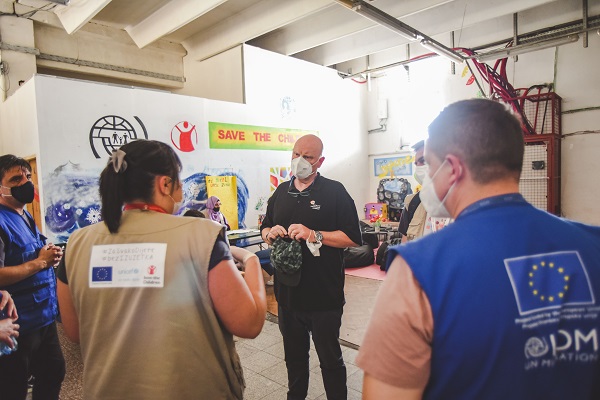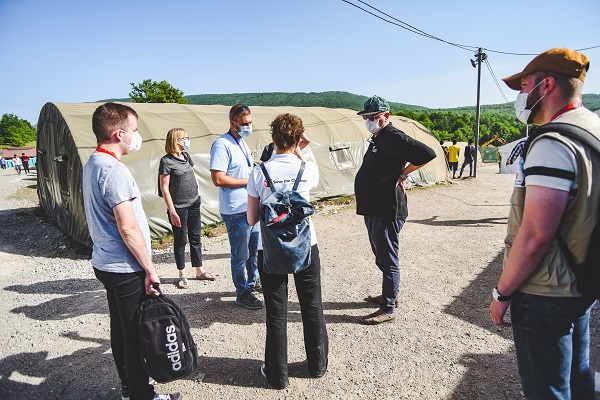 North West Balkans
North West Balkans
Languages
Blog post: Supporting refugee and migrant children in Bosnia and Herzegovina
A blog post by Jeremy Stoner, Regional Director, Save the Children Middle East and Eastern Europe Regional Office
The often quoted “It’s the not the destination, it's the journey”, had a real resonance for me when visiting the Borici camp for refugees and migrants in Bosnia and Herzegovina.
The journey for hundreds of migrant families from Afghanistan, Iraq, Syria, Pakistan, Morocco, and many others in Borici, is as tough as you might expect. People are often at the hands of people traffickers and smugglers and experience violence, hopelessness, separation, and fear, and a million other emotions; often combined with the raw physical sensations of hunger, thirst, and many times sickness too. These journeys are a tribute to anyone who survives them, and many don’t.
In Borici Camp, Save the Children works with local partners to provide meaningful and comprehensive support to migrant children. We ensure that children continue their education by supporting their enrollment into local schools and in parallel, organize non-formal education activities in the camp to support them in their learning. Through the implementation of the Healing and Education through the Arts (HEART) programme, children also get to enjoy the safe spaces we provide, along with the necessary psychosocial support we give to families.
As a trusted partner in Bosnia and Herzegovina, the Minister of Education of Una-Sana Canton, where the majority of our refugee response program takes place, has requested Save the Children’s support in adapting and using the HEART model for children impacted by COVID-19 and school closures, as well as requesting Save the Children’s support in reviewing the primary and secondary education system.
While at the camp, I had an opportunity to meet with an Iraqi man and his wife. Although the father has been in the camp for about a year, his wife and three children have been there for longer. He said, that while all of the support that he and his children receive through Save the Children is excellent, he feels inadequate as a father and he wants to be able to have a job and earn money to provide for his family. He wants his children to be able to make their own choices about what they want to do in a “free country.”
There are several camps across Bosnia and Herzegovina, yet numbers have reduced in all camps. Many refugees and migrants, including families and children travelling alone, reside in what are commonly referred to as squats, hoping to continue their journey to their destinations.

Visit to the Temporary Reception Centre Miral. Photo by Davor Midzic, Save the Children
I was simply unprepared mentally for the first visit that I made to a squat. Upon entering the building with the team, we passed a few migrants sitting around the main door in the shade on a day where temperatures reached 36 degrees. As we entered the building, there was a long corridor with rooms on either side, revealing rooms piled high with rubbish. The situation for children living in these squats is dire.
Save the Children, supported by the European Union through ECHO, runs outreach teams to monitor the situation in the field, identify children and families in need and refer them to accommodation and other services. We continue to inform donors, local authorities, the UN and other partners of the situation for children staying out of the shelters, and advocate for more capacity for accommodation of children and adults in vulnerable situations, as well as the other support services.
We must ensure that all children get the attention and protection they need and have a right to, and the first step is ensuring that children have a safe place to stay and a roof over their head.

Visit to Lipa Emergency Reception Centre. Photo by Davor Midzic, Save the Children